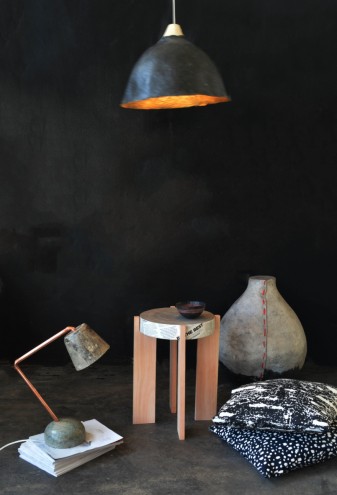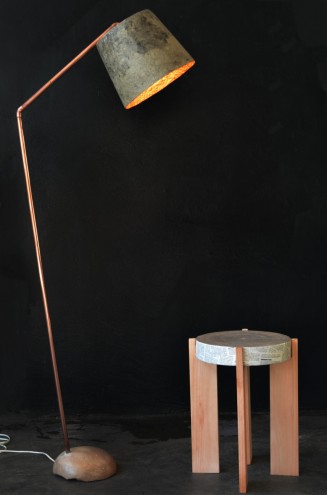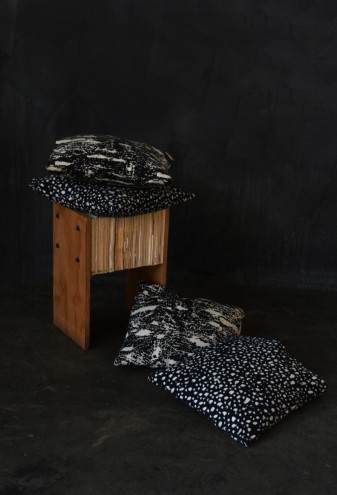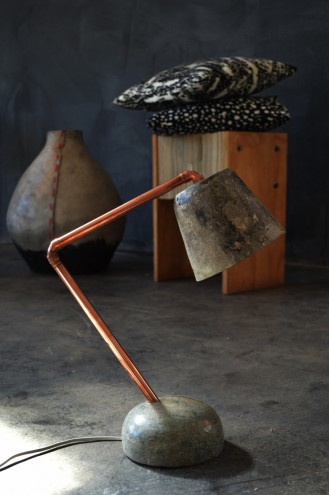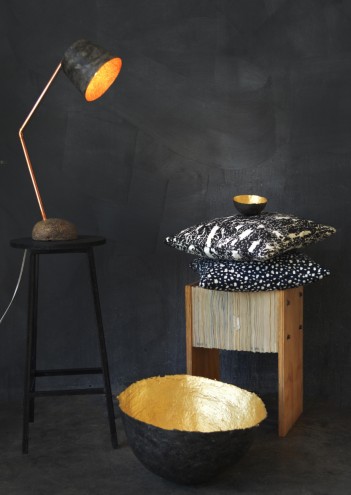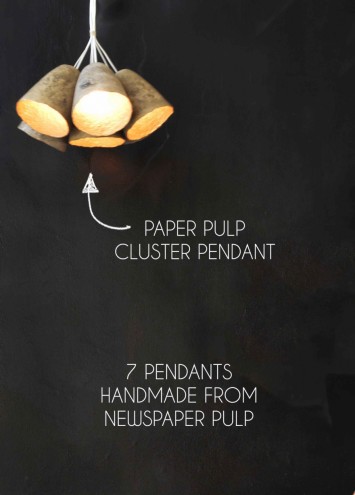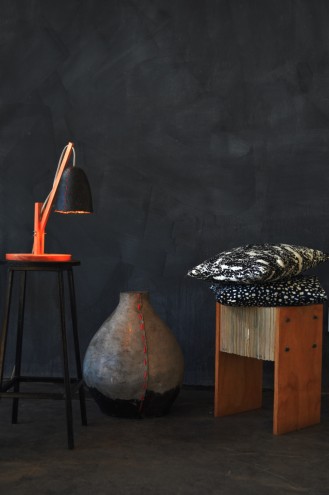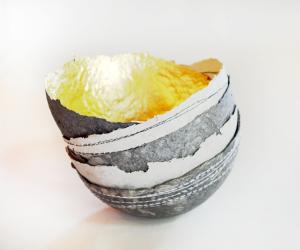Quazi Design has been innovating with paper as a material since 2009, when the small social enterprise started with just one artisan making earrings out of strips of rolled magazine paper. Now, several collections later, Quazi is producing some of its best work yet as it ventures into furniture and lighting with unusual new applications of paper.
The Swazi project’s just-launched Handmade Home Collection includes a stool/side-table, pendant and table lamps, printed cushions and decorative bowls. It is an ambitious departure from its previous focus on jewellery. The new range is clearly inspired by the kind of contemporary designs usually made from more expensive materials and with more sophisticated manufacturing processes, which makes Quazi’s use of paper all the more intriguing. Paper takes on a substantial quality, resembling stone, felt and wood. .
I was inspired by the texture of paper and how it can be transformed from a thin page to a strong wood-like substance, says designer Doron Shaltiel. This process fascinates me, especially as it’s very hands-on and organic.
The stool design features a circular seat painstakingly constructed from waste paper coiled round and round very tightly. It is then sculpted and varnished to be almost as resilient as the wood legs that support it. The process can take up to two weeks.
Lightweight industrial-style lampshades have the appearance of weathered stone or even metal. The table or desk lamp sits on a base of soapstone hand-carved by local craftsmen, while some of the hanging lights incorporate jacaranda wood.
“I love combining materials and textures, and supporting other artisans through our business,” says Shaltiel.
Swaziland has a lot to offer in terms of local skills and handcraft. “Many people reply on handcraft for their income and to support large families. We do sometimes work with design interns from Europe who want to experience working for a small ethical design business,” he says. “We are always open to collaborations and are actually looking for a furniture studio to collaborate with.”
The cushions are hand-printed on pure hemp canvas. The patterns are inspired by nature while the palette is simple and modern, letting the materials and techniques speak for themselves.
All the paper products are made from waste magazines and water-based glues at Quazi’s large workshop in the industrial area of Mbabane, but the techniques vary. “We make our own fibre-glass moulds at our workshop for our paper pulp, which we sometimes dye darker or lighter for light pendants, bowls and vessels,” Shaltiel explains. “Our only challenge is that we rely on the sun to dry our products outside!”
All products are handmade by local Swazi women under carefully maintained fair-labour standards, ensuring that they’re ethical as well as eco-friendly.
This is just the start of the collection, Shaltiel says. It will be fleshed out as the crafters experiment with different colours and applications.

